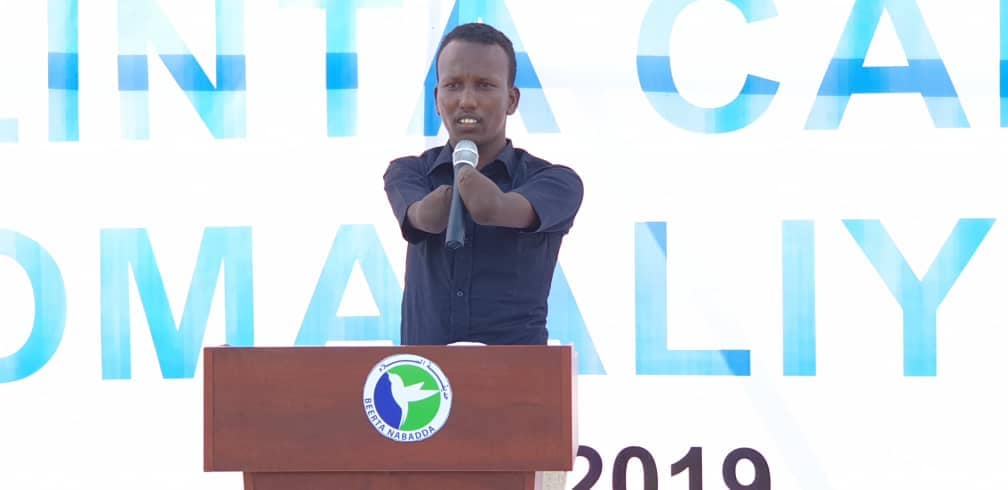“The clan system in Somalia is holding up peace development”
Rowda Olad and Abdirizaq Ahmed share a common goal: they want to promote peace in Somalia. As part of a communication project in Somalia and funded by the Ministry for Foreign Affairs, active youth, like Olad and Ahmed, tell about their work to promote peace development.

Rowda Olad works as a psychologist in Baidoa prison in southern Somalia. Her clients include former terrorist group members, who, according to Olad, have been brainwashed to support terrorist ideologies. In her work, Olad seeks to convince her clients to believe in free thinking.
“Mental health is not properly addressed in Somalia. If a person has mental health issues, they are simply labelled as crazy,” Olad describes.
She thinks that more of society’s resources should be channelled to mental health services, especially when the continuing conflicts are causing chronic stress to people and weakening their abilities to lead normal lives.
Olad is also politically active and wants to promote the peace development in Somalia. For example, she is taking a stand on the country’s clan system. The clans are choosing the candidates for elections, which continues to aggravate the political atmosphere. Furthermore, usually only men are involved in politics and women have to fight to get their voices heard.
“If women were involved in the decision making process, this country would be considerably more peaceful,” Olad says.
From herdboy to university student
When Abdirizaq Ahmed was 8 years old, his aunt tied his hands with a rope as a punishment for letting sheep escape. Consequently, Ahmed’s hands had to be amputated.
As a young adult, Ahmed decided to forgive his aunt. This gave rise to a story that Ahmed wants to share with the youth of his country.
“I told my aunt that people make mistakes. I don’t want to be a victim. If I can forgive my aunt, I believe that everyone in this country can do the same,” says Ahmed, who is currently studying at university.
Ahmed also reckons that the long traditions of revenge and hate are driven by the clans. “The clan system in Somalia is holding up the peace development. I want to work to ensure that the youth do not inherit this culture.”
Olad and Ahmed’s stories and the short documentaries based on them are a part of the Ministry for Foreign Affairs’ communication project that advances peace in Somalia. Journalist Wali Hashi is leading the project until 2023. The project naturally links to a broader Cafis Campaign (forgiveness), initiated by Wali Hashi in 2017.
The short documentaries can be viewed at the Ministry for Foreign Affairs’ Youtube channel with English subtitles. See Rowda Olad’s story: From Trauma Healing Towards Peace and Abdirizaq Ahmed’s story: Disabled Hero of Peace. The documentaries are broadcasted in Somalian television channels during July.

